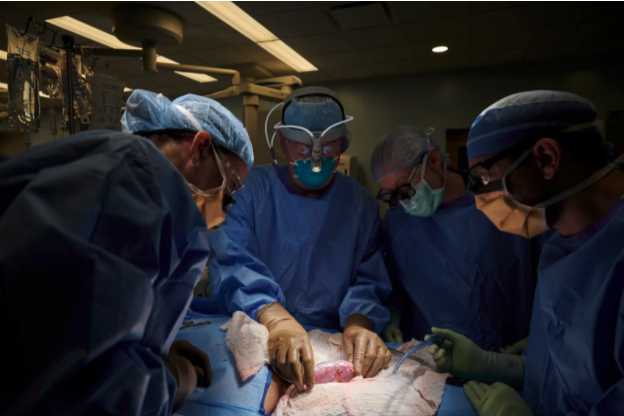Surgeons Pierce Medical Status Quo & Successfully Attach Pig Kidney to Human
Joe Carrotta/N.Y.U. Langone Health, via Associated Press
A surgical team in New York works to transplant pig kidney into human.
October 22, 2021
A team of New York surgeons has successfully attached a pig kidney to a genetically altered human body. This significant scientific breakthrough opens the opportunity for a new resource in organ transplants.
Currently, over 100,000 Americans are in need of an organ transplant with 90,240 of them requiring a new kidney. The possibility of using animal kidneys in these transplantation fast tracks the availability of usable organs and has the potential to save the lives of the 22 patients who die from organ failure daily.
Although the transplanted kidney was not into the body of the patient, the external functionality of the organ constitutes a significant scientific breakthrough. The field of xenotransplantation has been a continued research field in the hope of genetically altering animal organs to bypass the human immunological barriers.
Traditionally, the reason humans cannot use organs from different species is that our body’s immune response rejects them. Each cell within all living organisms holds signaling flags, called antibodies that protrude the cells membrane. These small signaling molecules are responsible for the rejection of non-human organs.
Along with antibodies, our body contains molecules called antigens which recognize any foreign antibodies detected within the body and trigger our body’s immune response. This response normally allows our body to fight against pathogens and is necessary to sustain life.
By genetically altering this pig to grow an organ that would not be rejected by the human body, these scientists have created a history that could save hundreds of thousands of lives.


